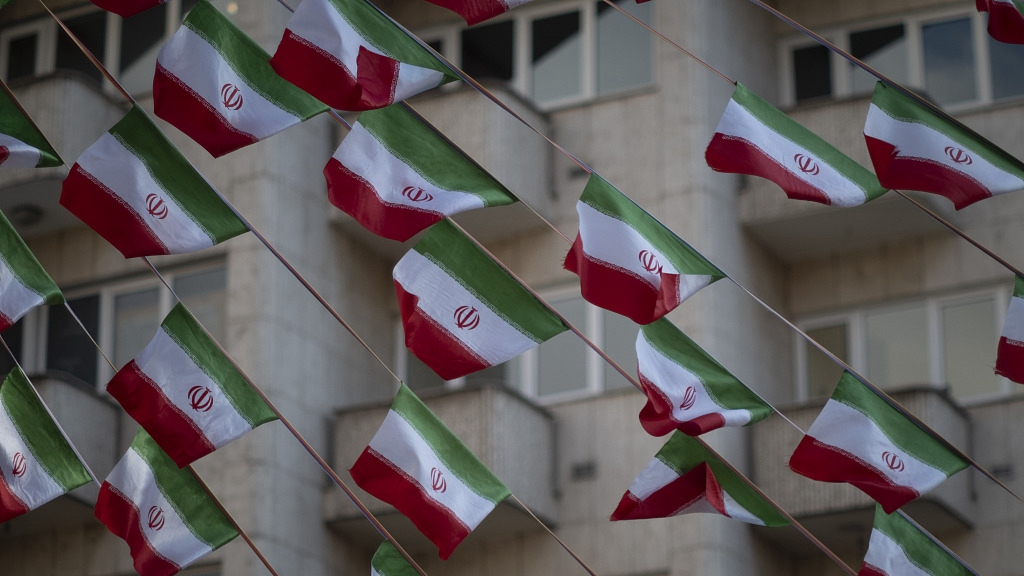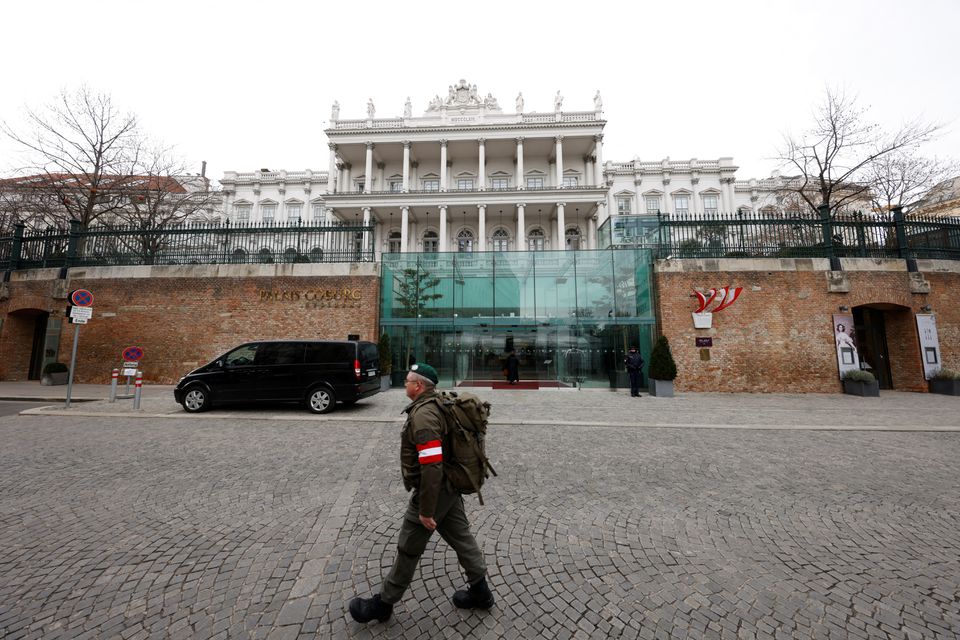
Iranian flags flutter in a square in downtown Tehran, Iran, February 7, 2022. /CFP
Iranian flags flutter in a square in downtown Tehran, Iran, February 7, 2022. /CFP
Editor's Note: Wang Jin is a research fellow at Charhar Institute and an associate professor at China's Northwest University. The article reflects the author's views and not necessarily those of CGTN.
The eighth round of talks on the Iran nuclear deal kicked off this week and could lead to breakthroughs that might arise from the goodwill of both the U.S. and Iran, although difficulties and obstacles remain.
Some new developments have happened during the past weeks. On the one hand, the U.S. waived some sanctions against Iran's civilian nuclear programs and paved the way for a further lifting of sanctions on Iran's nuclear programs. The U.S. also sent messages to France, Germany and the UK that it is willing to hold direct talks with Iran.
Meanwhile, Iran's chief nuclear negotiator Ali Bagheri Kani discussed the possibilities of a resumption of the Joint Comprehensive Plan of Action (JCPOA), as the deal is officially called, with the National Security and Foreign Policy Commission of Iranian Parliament. Given goodwill from both Iran and the U.S., a breakthrough in Vienna's new round of talks could be expected.
The ongoing talks in the Austrian capital are critical. Firstly, they could ease the tense situation. Iran has reached a uranium rate of 60 percent, and it might not be too long to reach the 90 percent threshold needed for use in a nuclear weapon. If this round fails to reach an agreement, uncertainties and risks might escalate in the near future.
Secondly, the negotiations could be severed as a bridge between the stances of Iran and the U.S. Iran maintains that it's America's unilateral withdrawal from the JCPOA in 2018 and unilateral sanctions against Tehran in recent years that led Iran to step up the entrenchment of uranium, and the U.S., therefore, should lift all the sanctions against Iran after 2018, and guarantee not to change its policy.
On the other hand, the U.S. says it's Iran's responsibility to roll back its uranium purity rate as it committed to under the JCPOA and accept close monitoring from the International Atomic Energy Agency (IAEA) without delay. Although there were contacts and discussions in the last seven rounds of talks, the gap between Washington and Tehran needs to be bridged.

Palais Coburg, the site of the JCPOA negotiations, in Vienna, Austria, February 8, 2022. /Reuters
Palais Coburg, the site of the JCPOA negotiations, in Vienna, Austria, February 8, 2022. /Reuters
Thirdly, successful talks could lessen new security risks in the Gulf region. It's been reported that the United Arab Emirates (UAE) suffered drone attacks by the Iran-backed Houthi militia in Yemen. As a result, alerts from the UAE, Bahrain and Saudi Arabia to Iran increased in the past weeks.
Meanwhile, Israel is seeking closer ties with Gulf Arab states to resist Iran's influence in the Middle East. Israeli Prime Minister Naftali Bennett even threatens that Iran is "not untouchable." Against the backdrop of the growth of Iran's nuclear capabilities and regional influence, the risk for regional conflicts is on the rise.
Given the divergent standpoints between Iran and the U.S. over how to go back to the nuclear mechanism under the JCPOA, as well as the internal and external pressure for both countries, it is very difficult to reach a comprehensive agreement at the conference in Vienna once and for all.
Therefore, a temporary agreement could be accepted by Iran and the U.S. to keep the Iranian uranium purity rate at 60 percent, and to lift more sanctions.
The lack of mutual distrust is the biggest obstacle to a final agreement between Iran and the U.S. The Iranians are concerned that the U.S. could re-impose sanctions even after the JCPOA has restarted or other agreements were reached, just as Washington did in 2018.
From the U.S. point of view, they have to be aware of the possibility that Tehran could secretly continue with the nuclear program. It is therefore demanding that both sides return to the JCPOA in full within the short term.
A temporary Iran nuclear deal is expected to be reached and could become the foundation for the final settlement. Facing a dim hope for a complete resumption of the JCPOA, the assistance of the international society is highly needed to secure stability and security in the Middle East.
(If you want to contribute and have specific expertise, please contact us at opinions@cgtn.com.)

